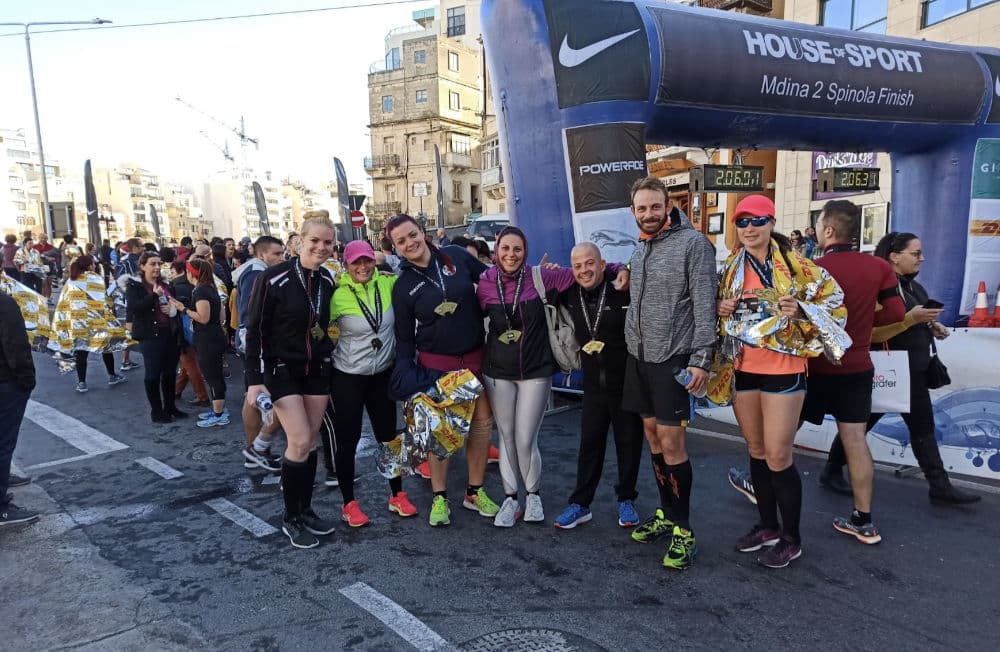
Having been an athlete myself all these years, sports has helped me not only survive, but thrive when facing certain difficult challenges in my life.
Thus, I would like to share with you the benefits that physical activity brings to our mental health. Since nowadays I am able to integrate physical activity, as well as psychotherapy, into my practice with clients, I have noticed that it proves both beneficial and helpful with their day-to-day challenges and overall support systems.
Let’s put this theory into practice.
Close your eyes and imagine yourself doing some physical activity. Create a mental space where it’s just you and your body in motion. Visualise yourself either running, lifting weights, doing CrossFit or any other kind of exercise or sport of your liking. Take notice of how your body starts reacting.
You might start feeling abdominal tightness, adrenaline rushing through your veins and beads of sweat forming on your neck. You try to keep your breathing steady while pushing harder. After several repetitions your heart beats faster and faster. Your muscles have now warmed up while you inhale and exhale at faster rate, The oxygen-carrying blood fuels your muscles from head to toe.
Even though it’s now getting tougher to maintain the same rhythm, you still hold on tight and stay focused. Sometimes you close your eyes for fear of getting dizzy. Your feet start feeling heavier and your heart is now beating so fast, you think it might explode at any moment. You might find yourself wondering where all this speed and physical strength came from. Next thing you know, you are hyperventilating, your muscles are cramping and your vision gets blurry. However, you still refuse to give up.
In the end, when you reach the finish line, score a goal, do an extra push up or lift an added weight, this is when your mind, body and soul become one. This is because you have accomplished something and all the tension, stress and anxiety have been released. This is how I make myself feel good and free, both physically and mentally.
And how did it feel for you? It felt darn good, am I right?
Research shows that regular physical activity decreases rates of depression and anxiety, lowers anger and stress levels, and has generally positive effects on mood when compared with physically inactive lifestyles (Hassmén et al., 2000; Krawczynski and Olszewski, 2000; Bilderbeck et al., 2013). The influence of physical exercise on mood may be mediated through its physiological parameters, such as the regulation of body temperature, adrenal activity and the neurotransmission of noradrenaline and dopamine. Physical activity also helps people to be distracted or diverted from stressful situations and imparts a sense of control in their lives (Brugman and Ferguson, 2002).
Certain institutions around the world are integrating physical activity with mental health services. Research shows that carrying out exercise is associated with the alleviation of negative symptoms such as depression, low self-esteem and social withdrawal (Clow & Edmunds, 2013) . When designing an exercise plan with the help of fitness trainers, coaches and so forth, you are developing detailed plans for behavioural changes via goal-setting. When receiving ongoing feedback about your performance, your efforts to become more physically active are reinforced. While doing so, you also create opportunities for social support, thus making you enjoy the process of being physically active even more.
So how about giving physical exercise a try?
Even though each athlete is being followed by different coaches, while others are designing their own training plans, still this picture portrays friendship, support, motivation and fun.
References:
- Bilderbeck AC, Farias M, Brazil IA, Jakobowitz S, Wikholm C (2013) Journal of Psychiatric Research 47: 1438–1445.
- Brugman T, Ferguson S (2002) Physical exercise and improvements in mental health. Journal of Psychosocial Nursing and Mental Health Services 40: 24–31.
- Clow A & Edmunds, S. (2013). Physical Activity and Mental Health. ISBN13 9781450434331
- Hassmén P, Koivula N, Uutela A (2000) Physical exercise and psychological well-being: A population study in Finland. Preventive Medicine 30: 17–25.
- Krawczynski M, Olszewski H (2000) Psychological well-being associated with a physical activity program for persons over 60 years old. Psychology of Sport and Exercise 1: 57–63.






